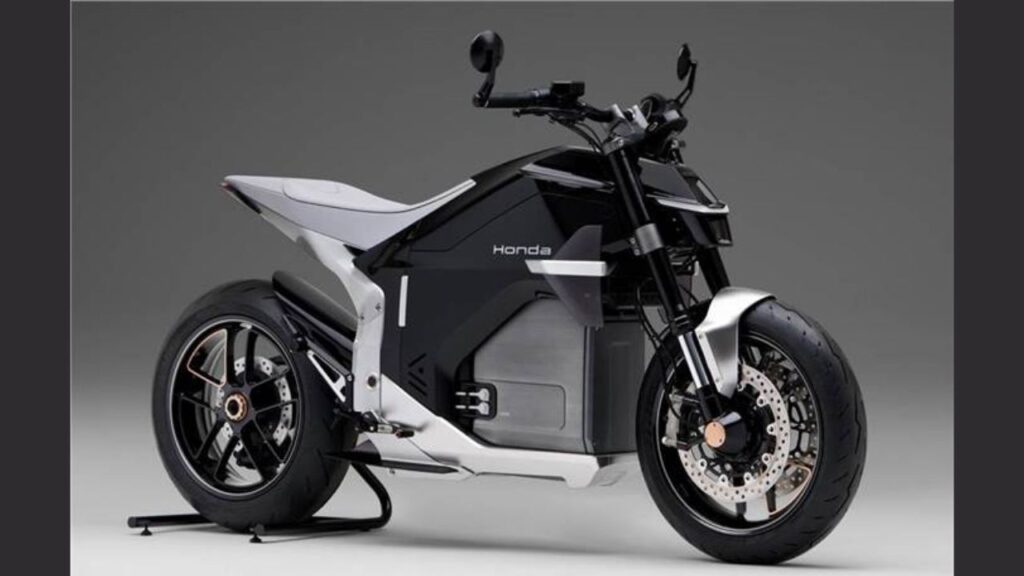Honda Motor Company is set to deepen its commitment to the electric vehicle (EV) market with plans to establish a dedicated electric motorcycle manufacturing facility in India by 2028. This announcement was made by Daiki Mihara, head of the Motorcycle and Power Products Electrification Business Unit, during a recent media briefing in Japan.
The factory is expected to be located in Karnataka, complementing Honda’s existing two-wheeler manufacturing plant in Narasapura, near Bengaluru. While the primary focus will be on addressing India’s growing demand for electric motorcycles, the facility is also poised to serve as an export hub for emerging markets seeking affordable EV solutions.
A New Era in Electric Two-Wheelers
Honda plans to begin production with a commuter electric bike featuring a 4kWh battery, equivalent to the performance of a 100cc internal combustion engine (ICE) model. Mihara indicated that the company will expand its offerings over time, including midsize electric bikes, leveraging a modular design approach to develop various models.
Collaboration with battery manufacturers will play a key role in Honda’s strategy, as it works to develop battery solutions optimized for motorcycles while ensuring consistent supply. Furthermore, the company is investing in secondary battery applications and recycling initiatives to contribute to carbon neutrality.
Aspiring to Lead India’s EV Market
Although Honda has entered the EV sector relatively late, it has set an ambitious goal: to become the leading electric motorcycle brand in India. The company plans to achieve this by integrating its expertise in ICE technology with innovative EV designs and ensuring that the total cost of ownership of its EVs over three years matches that of traditional ICE vehicles.
Mihara also revealed plans to launch a new sports electric motorcycle, inspired by the EV Fun concept, later this year. This model will spearhead the creation of a dedicated Honda Electric brand, distinct from its traditional offerings.
Scaling Up Global Ambitions
Honda aims to introduce 30 electric two-wheeler models globally by 2030, with an annual sales target of 4 million units. So far, the company has launched 13 models across international markets. In India, Honda recently unveiled two electric scooters tailored to local needs:
- Activa e: Featuring dual portable, swappable batteries, compatible with Honda’s Mobile Power Pack Exchanger e: stations.
- QC1: A fixed-battery model designed for urban mobility.
Additionally, Honda showcased its EV Fun Concept and EV Urban Concept at EICMA 2024, along with the global CUV e: model, which shares similarities with the Activa e: and is set to launch in 20 countries.
Battery Solutions and Infrastructure Expansion
Honda’s Mobile Power Pack e: technology is a cornerstone of its strategy, offering swappable, portable batteries for motorcycles and other applications, including construction and agricultural machinery. The company plans to introduce its battery-swapping service in major Indian cities such as Bengaluru, Delhi, and Mumbai, ensuring users enjoy seamless charging experiences.
In parallel, Honda is working on fixed-battery solutions and aims to establish a robust charging infrastructure across the country, leveraging its extensive network of 6,000 sales outlets to provide reliable service and support.
Advancing Circular Economy Goals
In collaboration with OMC Power, Honda is exploring innovative ways to repurpose used Mobile Power Pack e: batteries to provide electricity to underserved regions. This initiative targets small shops and schools in areas with limited or unstable power supplies, reinforcing Honda’s commitment to a sustainable, circular value chain that includes recycling precious materials.
Driving Toward a Greener Future
With a clear focus on sustainability, affordability, and innovation, Honda is positioning itself as a key player in the global shift toward electric mobility. Through strategic investments and a robust product pipeline, the company aims to meet diverse consumer needs while driving progress toward carbon neutrality and leadership in the EV market.
Read More:

